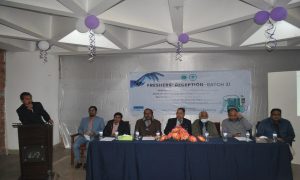
USTC has opened up a new horizon for the technological community of the country by launching the Department of EEE in the year of 2012 which is indeed a bold step by the University in fulfilling its mission. Since its inception, EEE has been the pioneer department.
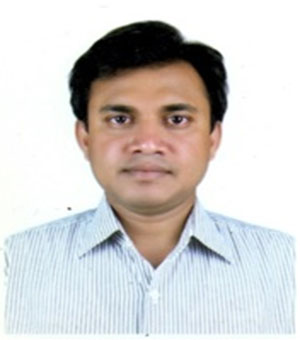
The University of Science and Technology Chittagong (USTC) is an excellent institution for engineering studies. As dean of the Faculty of Science, Engineer and Technology (FSET), I am incredibly proud of USTC's longstanding commitment to providing a practical, experience-based engineering education. Engineers are dedicated to enriching human existence through innovation and progress. They tackle challenges through inventive reasoning and methodical progress. We shape the future of graduate engineers to become community leaders in accordance with the Human Development Pillar, which requires "a world-class education system, healthcare system, and an efficient and committed workforce that achieves a competitive labor market to enable the Bangladesh population to participate in development." We strive to equip our graduates with the knowledge, skills, and competences necessary to flourish on the job market from day one. We use practical applied courses in industrial settings such as industrial pilot plants, laboratories, and workshops within the university, as well as the most advanced available technologies, to develop the skills and competencies of our graduates so that they are a valuable asset to any future employer.
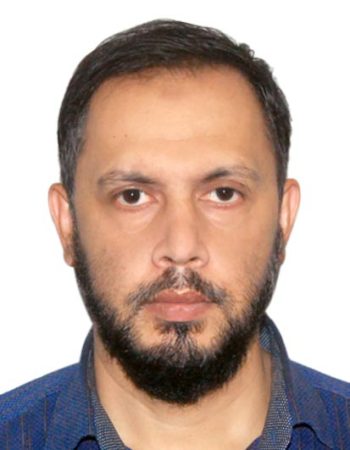
Welcome to the Department of Electrical and Electronic Engineering (EEE) at USTC. Established in 2006, the department began its journey with a clear mission, to produce highly skilled engineers and professionals who excel at the frontiers of cutting-edge technology, research, innovation and product development. The EEE Department is proud to have a team of dedicated and accomplished faculty members with extensive experience in both industry and academia. Our state-of-the-art laboratories and research facilities provide an ideal environment for hands-on learning, experimentation and innovation. Our primary goal is to nurture engineers, educators, and professionals who not only master advanced technologies but also contribute meaningfully through research, idea generation, and innovative design. Over the years, the department has grown significantly and is now home to a large number of undergraduate students. With more than 1,000 alumni, our graduates are making impactful contributions both nationally and internationally across diverse sectors. As we navigate the rapidly evolving landscape of the Fourth Industrial Revolution (4IR), we are inspired by the immense potential for innovation and societal advancement. The convergence of advanced technologies presents both new challenges and limitless opportunities that our students and researchers are well-equipped to embrace. The Department of EEE enjoys a strong reputation for academic excellence, research productivity, and community engagement. We consistently prepare graduates who are ready to meet the complex demands of the engineering profession. Current research areas within the department include Power Electronics, Electrical Machines and Drives, Renewable Energy and Energy Systems, Semiconductor Physics and Devices, VLSI Technology, Control Systems, Telecommunications and more. We invite you to explore our department and join us in shaping a brighter technological future.
The courses of study for the B.Sc. degree in EEE are structured to provide a foundation in both basic sciences and this branch of engineering. The program also has sufficient general education to enhance the cultural growth of a student and develop professionals with a strong social awareness.
Elective courses are introduced from senior year. Students must meet the design, depth, and breath requirements of the department in their selection of the elective courses.
The design requirement is met through senior project of 4.5 Credit hours. The breadth requirement is met by taking courses in other core areas or courses in emerging technologies.
The laboratories of Department of Electrical and Electronic, USTC are well furnished. The names of the Laboratories are as follows

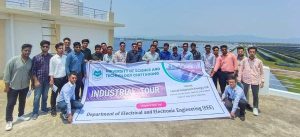
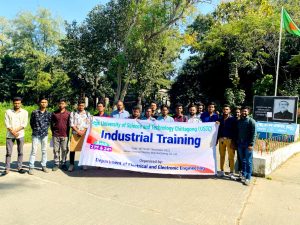

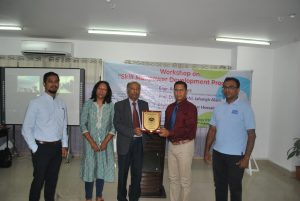
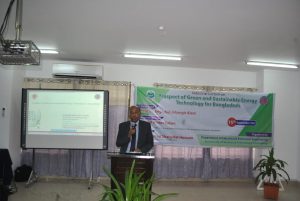
USTC D’ block, 2nd floor
Email: office.eee@ustc.ac.bd
Phone:
Foy’s Lake, Zakir Hossain Road
Chattogram 4202.